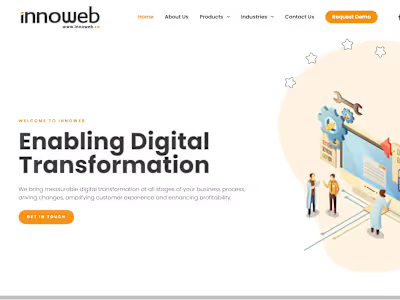Blog article on the Startup Ecosystem in Bangladesh
Every Thursday night, over drinks, someone in my circle of friends that I have had for over 20 years will unequivocally proclaim “We should build a startup.” And someone else will remind them we have had this discussion a few times before and that nothing has come of it.
We are all in and around our 40s, with careers in Bangladesh, spanning decades in telecommunication, software, technology, ready-made garments, fast-moving consumer goods, and a university professor of Finance. The short of it is that we have seen the corporate sector in all these industries grow, from our entry into the market to where we are today — either in middle or top management. So one would think that we could and possibly should be able to come up with the next big idea to solve at least one problem for Bangladesh, a country that is beset by a myriad of major and minor ones.
But it never comes to fruition — not because the ideas don’t come to us, but because we firmly believe that building a startup is a young man’s game. And yet looking at HBR’s research into the average age of a successful startup founder we see that it is 45 — which for the record is a whopping five years on me.
So if age isn’t the issue — a fact that my eyes dispute because all I see in the numerous cafes across the capital are 20-something-year-olds with Macbooks and AirPods to create the next unicorn — then what is? If ideas for startups aren’t a barrier to entry, is it the lack of funding or investment in the sector? Let’s take a look, shall we?

Photo by
The Market
Bangladesh has a burgeoning, digitally savvy population whose consumer patterns are growing exponentially. With a population of 169M and a median age of 28 years, of which 90% own a mobile phone and 39% have access to high-speed internet — it is a country at the beginning of its digital transformation. There are 175M Mobile Financial Services (MFS) account holders and 12M affluent consumers, a number that is expected to triple by 2025 according to the World Bank. Bangladesh has the second highest GDP in South Asia at $445Bn and a growth rate of 6.94%, compared to 6.50% in Pakistan. Bangladesh’s startup ecosystem is currently ranked 4th in South Asia and 89th in the world with roughly 1200 active startups. With all that in mind, the Bangladesh government has set out a target of creating five local unicorns or billion-dollar companies by 2025 and is working on changing policies that assist emerging and growing startups in many aspects, whether it is policy level, training or development.
The Deals
2022 saw a marked drop of 73% in investments in flourishing startups, excluding the largest-ticket investment in 2022 — which was a $65M deal between Valar Ventures and Flourish Ventures as investors in ShopUp, a full-stack B2B commerce platform for small businesses. The other 26 deals that were struck were led by local investors, with most of the deals taking place in the early rounds — highlighting that the industry is still maturing. The pertinent fact here is that local investors have filled the gap that has been created due to the reduction of international funds, mostly due to the Russia-Ukraine war and the global recession. Including the Shopup-Valar-Flourish deal, startups in Bangladesh raised $112M in 2022, the majority of it being raised in the first half of 2022.
The Numbers
on
on
The Trends
Most of the top conglomerates in Bangladesh are monolithic enterprises with a single decision-maker at the top, usually someone of a more advanced age and old-school mentality. A mentality that dictates investing in property over diversifying their core business and trying new revenue streams. As Waseem Alim, Co-Founder and CEO of Chaldal.com says “More than entrepreneurs, we need smart venture financiers.”
The other major issue is Brain drain. Our smartest young minds migrate to first-world countries the first chance that they get, either physically or remotely through freelancing. This is largely due to a lack of opportunities and investment. It is easier to open an account on Upwork and start chasing foreign clients than to join a local business doing the same. Businesses can’t scale fast enough to equitably compensate the talent in comparison to what they can make freelancing.
As far as the downturn in investments goes, it is projected to continue through much of 2023. But things are projected to look up at the beginning of 2024 — with the world recovering from COVID-19 and economic conditions improving. With Bkash, a local Mobile Financial Service provider becoming the country’s first unicorn — the ecosystem is attracting a significant number of international investors to Bangladesh for the first time. A trend that is projected to move upwards.
With the global recession looming, new ventures are opening up everywhere due to a lot of skilled professionals coming back home. This coincides with the growth of startups where the management structure is that an international holding company owns the majority of the local entity, which acts as the operating company.
With the rise of investment and government initiatives, I believe the time is right to jump into realizing that vision you have in your head. As Jack Dorsey, co-founder of Twitter once said “Having first mover advantage is over-rated. MySpace was a first mover. It’s more important to have an idea BEST than have it FIRST. There is always room for disruption.”
Find a problem. Solve the problem. Make something people need. Easy, right?
Maybe I should start taking our Thursday night discussions a bit more seriously.
Like this project
Posted Aug 31, 2023
Article discussing the investment portfolio in the startup scene in Bangladesh. The article has 500 reads and an Average Time Spent on the page of 2 mins.





